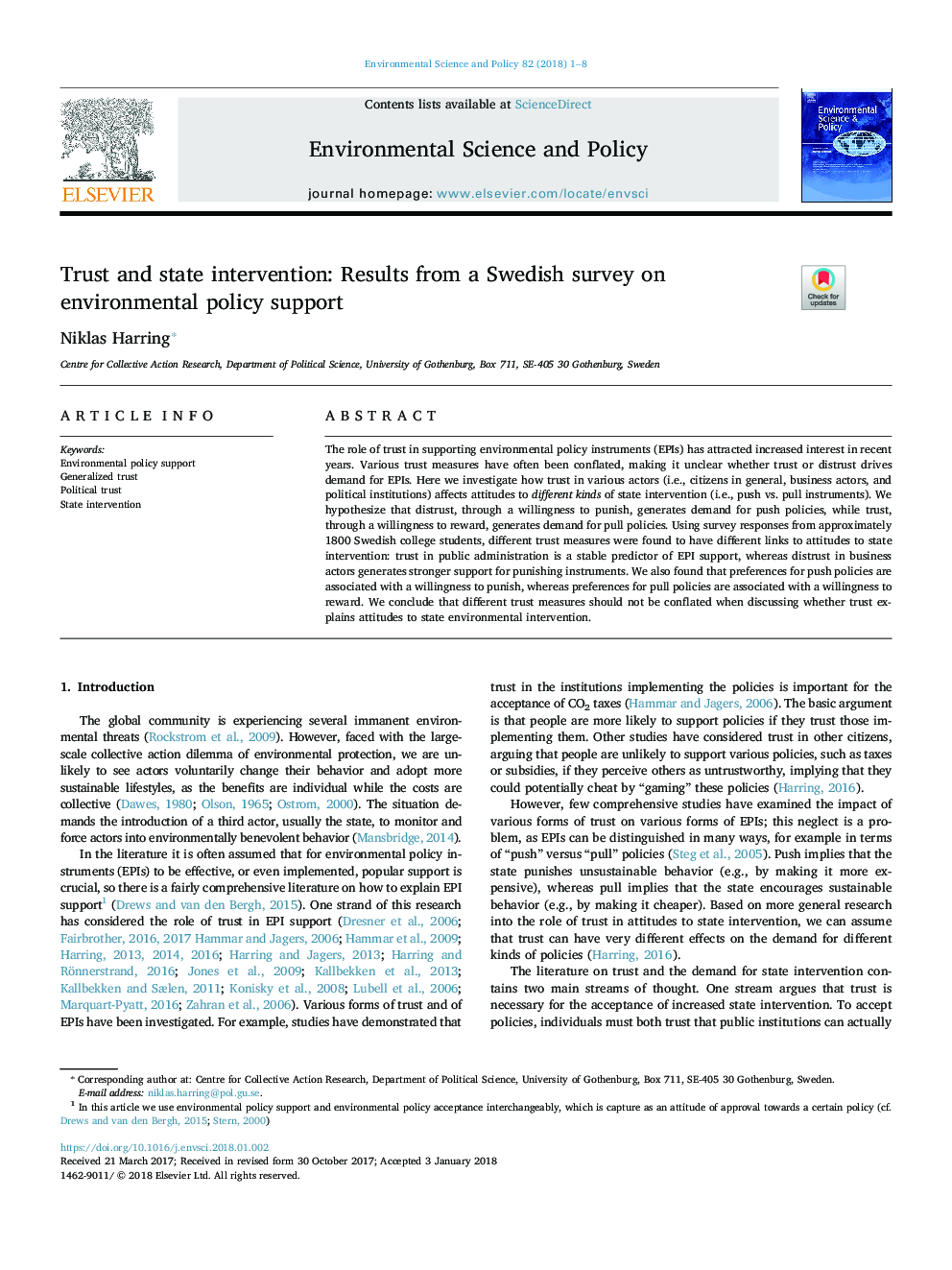| Article ID | Journal | Published Year | Pages | File Type |
|---|---|---|---|---|
| 7466162 | Environmental Science & Policy | 2018 | 8 Pages |
Abstract
The role of trust in supporting environmental policy instruments (EPIs) has attracted increased interest in recent years. Various trust measures have often been conflated, making it unclear whether trust or distrust drives demand for EPIs. Here we investigate how trust in various actors (i.e., citizens in general, business actors, and political institutions) affects attitudes to different kinds of state intervention (i.e., push vs. pull instruments). We hypothesize that distrust, through a willingness to punish, generates demand for push policies, while trust, through a willingness to reward, generates demand for pull policies. Using survey responses from approximately 1800 Swedish college students, different trust measures were found to have different links to attitudes to state intervention: trust in public administration is a stable predictor of EPI support, whereas distrust in business actors generates stronger support for punishing instruments. We also found that preferences for push policies are associated with a willingness to punish, whereas preferences for pull policies are associated with a willingness to reward. We conclude that different trust measures should not be conflated when discussing whether trust explains attitudes to state environmental intervention.
Related Topics
Physical Sciences and Engineering
Energy
Renewable Energy, Sustainability and the Environment
Authors
Niklas Harring,
